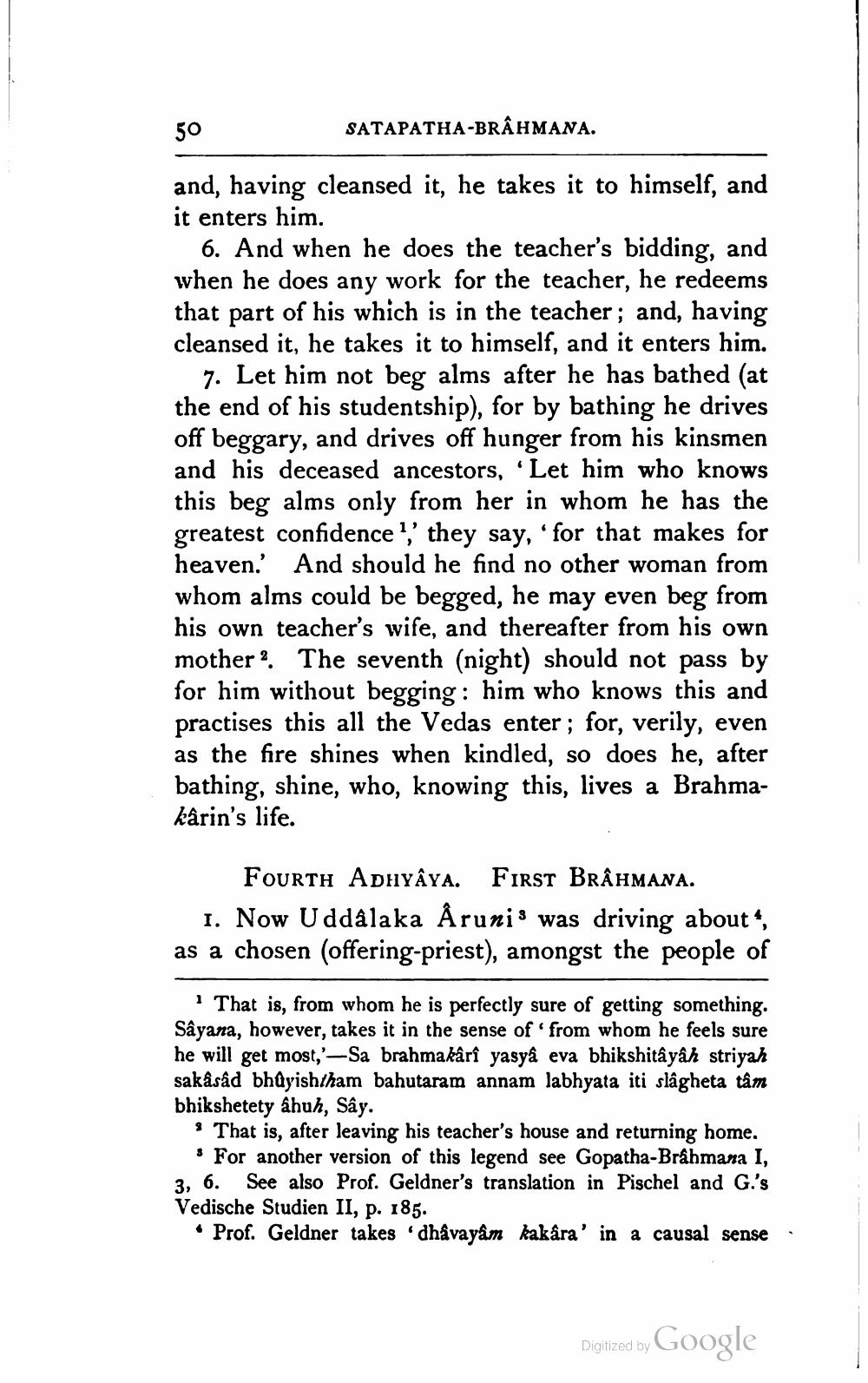________________
50
SATAPATHA-BRAHMANA.
and, having cleansed it, he takes it to himself, and it enters him.
6. And when he does the teacher's bidding, and when he does any work for the teacher, he redeems that part of his which is in the teacher; and, having cleansed it, he takes it to himself, and it enters him.
7. Let him not beg alms after he has bathed (at the end of his studentship), for by bathing he drives off beggary, and drives off hunger from his kinsmen and his deceased ancestors, 'Let him who knows this beg alms only from her in whom he has the greatest confidence ',' they say, 'for that makes for heaven.' And should he find no other woman from whom alms could be begged, he may even beg from his own teacher's wife, and thereafter from his own mother. The seventh (night) should not pass by for him without begging: him who knows this and practises this all the Vedas enter; for, verily, even as the fire shines when kindled, so does he, after bathing, shine, who, knowing this, lives a Brahmakârin's life.
FOURTH ADHYAYA. FIRST BRAHMANA.
I. Now Uddâlaka Arunis was driving about*, as a chosen (offering-priest), amongst the people of
1 That is, from whom he is perfectly sure of getting something. Sâyana, however, takes it in the sense of 'from whom he feels sure he will get most,'-Sa brahmakârî yasyâ eva bhikshitâyâh striyah sakâsâd bhuyish/ham bahutaram annam labhyata iti slâgheta tâm bhikshetety âhuh, Sây.
* That is, after leaving his teacher's house and returning home. For another version of this legend see Gopatha-Brahmana I, 3, 6. See also Prof. Geldner's translation in Pischel and G.'s Vedische Studien II, p. 185.
Prof. Geldner takes 'dhâvayâm kakâra' in a causal sense
Digitized by
Google




